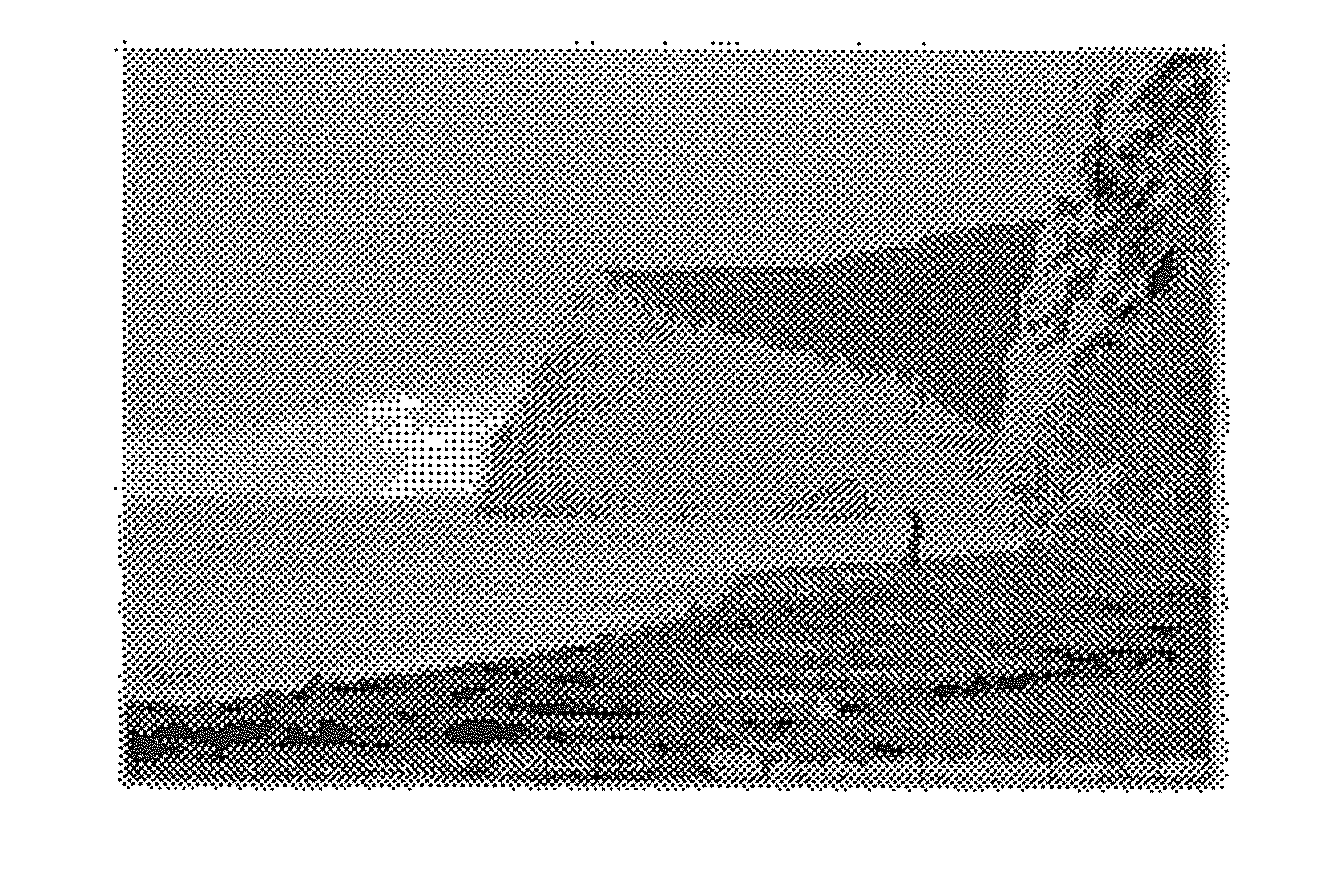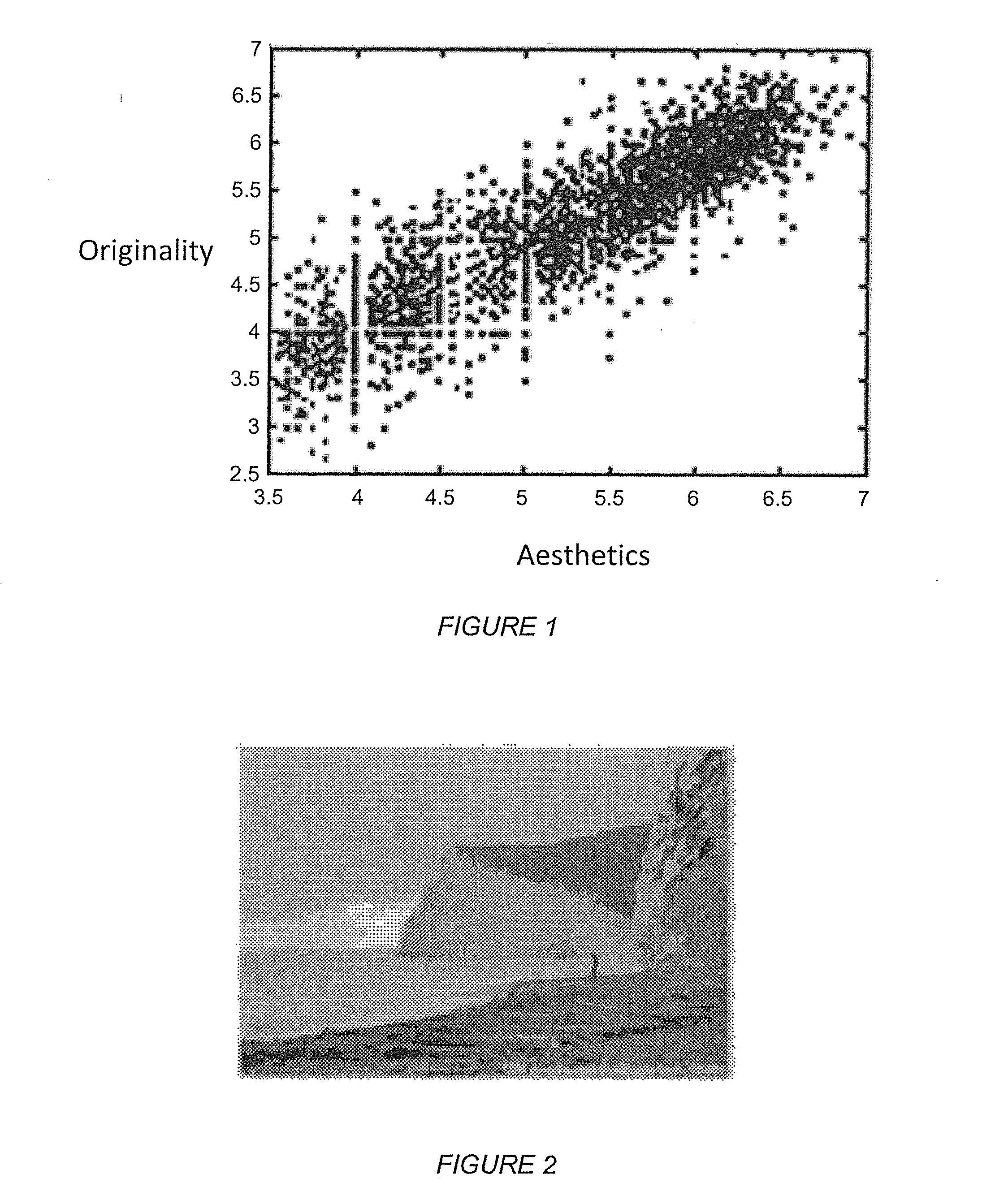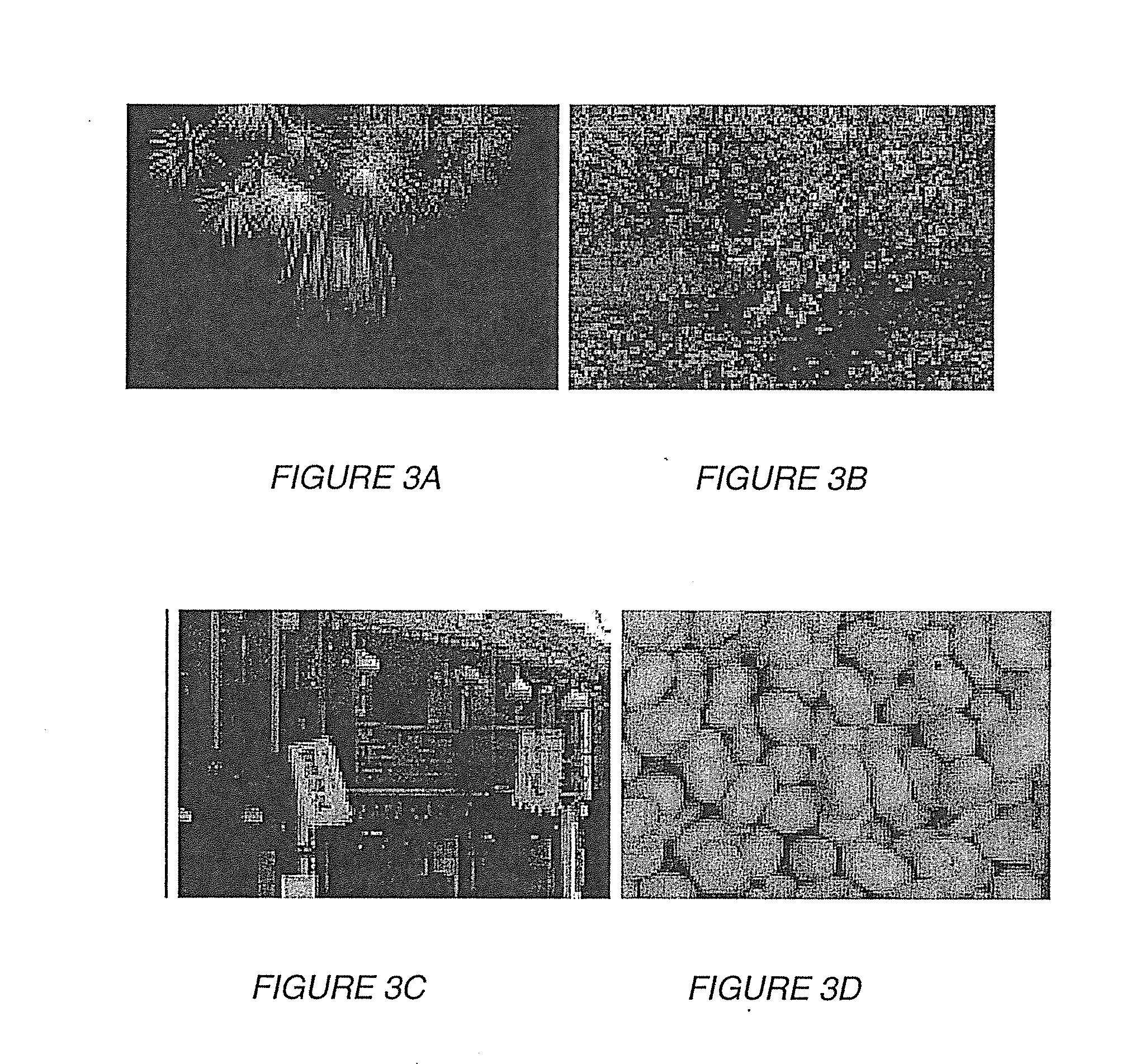Studying aesthetics in photographic images using a computational approach
a computational approach and photographic image technology, applied in computing, instruments, character and pattern recognition, etc., can solve the problems of difficult to take or process a particular shot, difficult to remove low-quality images, and difficulty in analyzing aesthetics in pictures or photographs. achieve the effect of eliminating low-quality images
- Summary
- Abstract
- Description
- Claims
- Application Information
AI Technical Summary
Benefits of technology
Problems solved by technology
Method used
Image
Examples
Embodiment Construction
[0036]In spite of the ambiguous definition of aesthetics, this invention shows that there does exist certain visual properties which make photographs, in general, more aesthetically beautiful. We tackle the problem computationally and experimentally through a statistical learning approach. This allows us to reduce the influence of exceptions and to identify certain features which are statistically significant in good quality photographs. Our results and findings could be of interest to the scientific community, as well as to the photographic art community and manufacturers for image capturing devices.
[0037]We downloaded those pictures and their associated meta-data which were rated by at least two members of the community. In order not to over-distract the normal services provided by the site, we downloaded the data slowly and over a long-period of time for our research. For each image downloaded, we parsed the pages and gathered the following information: (1) average aesthetics sco...
PUM
 Login to View More
Login to View More Abstract
Description
Claims
Application Information
 Login to View More
Login to View More - R&D
- Intellectual Property
- Life Sciences
- Materials
- Tech Scout
- Unparalleled Data Quality
- Higher Quality Content
- 60% Fewer Hallucinations
Browse by: Latest US Patents, China's latest patents, Technical Efficacy Thesaurus, Application Domain, Technology Topic, Popular Technical Reports.
© 2025 PatSnap. All rights reserved.Legal|Privacy policy|Modern Slavery Act Transparency Statement|Sitemap|About US| Contact US: help@patsnap.com



